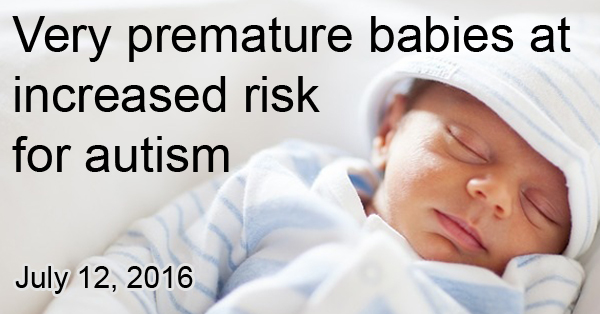Check out other stories from the Latest News
ASD Risk Increases in Very Premature Babies
By Chelsea E. Toledo, M.A. on July 12, 2016

Background: Recent data from the U.S. Centers for Disease Control and Prevention shows that about 1 in 67 of 8-year-olds – or 1.5 percent – have an autism spectrum disorder (ASD) diagnosis. Boys are about four times more likely than girls to receive a diagnosis. The disorder, usually diagnosed during childhood, is characterized by social, behavioral and communicative differences.
What’s New: In a new study published May 25, 2016, researchers found that the prevalence of ASD was much higher – at about 7 percent – in children who were born before 27 weeks gestation. The risk of meeting ASD diagnostic criteria was higher the earlier a child was born.
The researchers performed an ASD screening on 889 10-year-olds who had been born at 23-27 weeks gestation, as well as follow-up diagnostic interviews on eligible children who met the screening criteria. They found that 61 children in the eligible sample met the diagnostic criteria for ASD, resulting in a prevalence of 7.1% in the entire group. The risk of meeting ASD diagnostic criteria increased the more prematurely children were born, with a prevalence of 15% in children born at 23-24 weeks gestation. About twice as many boys than girls met the diagnostic criteria for ASD.
Why it’s important: The overall prevalence of ASD was much higher in this sample of children born prematurely than in general population – with a much smaller ratio of boys to girls receiving diagnoses. This study suggests that children born prematurely should receive enhanced screening for ASD. Future studies could determine the underlying factors putting premature children at a greater risk.
Help me understand :
| Source(s) : |
| Tweet |

